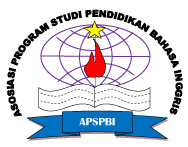TECHNOLOGY-SUPPORTED PEER FEEDBACK: A LITERATURE REVIEW
Abstract
References
Alharbi, M. A., & Al-Hoorie, A. H. (2020). Turnitin peer feedback: controversial vs. non-controversial essays. International Journal of Educational Technology in Higher Education, 17(1), 117. https://doi.org/10.1186/s41239-020-00195-1
Chen, T. (2016). Technology-supported peer feedback in ESL/EFL writing classes: a research synthesis. Computer Assisted Language Learning, 29(2), 365397. https://doi.org/10.1080/09588221.2014.960942
Deiglmayr, A. (2018). Instructional scaffolds for learning from formative peer assessment: effects of core task, peer feedback, and dialogue. European Journal of Psychology of Education, 33(1), 185198. https://doi.org/10.1007/s10212-017-0355-8
Demir, M. (2018). Using online peer assessment in an instructional technology and material design course through social media. Higher Education, 75(3), 399414. https://doi.org/10.1007/s10734-017-0146-9
Farr, F., & Murray, L. (2016). The Routledge handbook of language learning and technology. Routledge.
Hamied, F.A. (2017). Research methods: A guide for first-time researchers. UPI Press
Luo, T. (2016). Enabling microblogging-based peer feedback in face-to-face classrooms. Innovations in Education and Teaching International, 53(2), 156166. https://doi.org/10.1080/14703297.2014.995202
Saeed, M. A., Ghazali, K., Sahuri, S. S., & Abdulrab, M. (2018). Engaging EFL learners in online peer feedback on writing: What does it tell us? Journal of Information Technology Education: Research, 17, 039061. https://doi.org/10.28945/3980
Saidalvi, A., & Samad, A. A. (2019). Online peer motivational feedback in a public speaking course. GEMA Online Journal of Language Studies, 19(4), 258277. https://doi.org/10.17576/gema-2019-1904-14
van den Bos, A. H., & Tan, E. (2019). Effects of anonymity on online peer review in second-language writing. Computers and Education, 142, 103638. https://doi.org/10.1016/j.compedu.2019.103638
van der Pol, J., van den Berg, B. A. M., Admiraal, W. F., & Simons, P. R. J. (2008). The nature, reception, and use of online peer feedback in higher education. Computers and Education, 51(4), 18041817. https://doi.org/10.1016/j.compedu.2008.06.001
Wu, J. G., & Miller, L. (2020). Improving English learners speaking through mobile-assisted Peer Feedback. RELC Journal, 51(1), 168178. https://doi.org/10.1177/0033688219895335
Yeh, H.-C., Tseng, S.-S., & Chen, Y.-S. (2019). (2019). Using online peer peedback through blogs to promote speaking performance: Discovery Service for Perpustakaan Nasional Republik Indones. http://e-resources.perpusnas.go.id:2137/eds/pdfviewer/pdfviewer?vid=6&sid=3d8fc3d7-6424-4e0e-8cec-b554dda39bc1%40sdc-v-sessmgr01
Zaier, A., Arslan-Ari, I., & Maina, F. (2020). The use of video annotation tools and informal online discussions to explore preservice teachers self- and peer-evaluation of academic feedback. Journal of Education, 002205742090326. https://doi.org/10.1177/0022057420903269
DOI: 10.55215/jetli.v3i1.3413
 Abstract views : 646
Abstract views : 646
Refbacks
- There are currently no refbacks.
Copyright (c) 2021 JETLi | Journal of English Language Teaching and Linguistics Studies

This work is licensed under a Creative Commons Attribution-NonCommercial-ShareAlike 4.0 International License.



